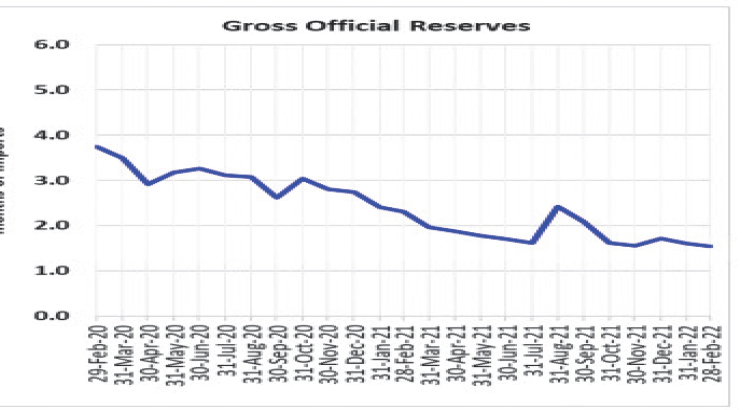Malawi needs a long-term strategy if the country is to improve forex availability, financial and economic analysts have said.
Speaking in an interview on Monday, Financial Market Dealers Association of Malawi (Fimda) president Mclewen Sikwese said diversifying and strengthening the export base beyond what Malawi has traditionally produced for years is what the country needs.
He said Malawi has the capacity to produce commodities that are in high demand on the international market.
Sikwese said: “There is no shortcut to getting out of the foreign exchange fix. Measures looking to address both the demand and supply side of foreign exchange need to be adopted.
“Import substitution is critical to arrest the escalating demand for foreign exchange, considering the country’s appetite for imports and lack of domestic productive capacity.”
Last week, the Reserve Bank of Malawi (RBM) announced that it had revised requirements for mandatory sale of export proceeds with immediate effect, a move meant to improve forex liquidity in the market.
Under the new provision, RBM said all exporters shall sell a minimum of 30 percent of their export proceeds to the RBM through authorised dealer banks while retaining, at most, 70 percent of the proceeds in their foreign currency denominated accounts.
This comes at a time when gross official forex reserves, under the direct control of the RBM, have continued to fall with data showing that 85 million , or 1.54 months of import cover, from $482.38 million or 2.31 months of import cover, in February 2021.
According to an RBM financial market development report, as at February 28, all authorised dealer banks had cumulative foreign exchange of $407.22 million, a drop from $424.49 million as at January 31.
Market analyst Bond Mtembezeka observed that temporary measures will not take the country out of its forex drought, stating that what the country needs is a long-term measure.
“Presently, banks are rationing forex, which speaks volumes of the dire forex situation we are in.
“On the other hand tobacco, which helps our forex buffer, is also projected to decline this year and we are bound to have forex shortages throughout.”
Weighing in, economic statistician Alick Nyasulu is of the view that the sure way out of the foreign exchange liquidity challenges is to abolish the Affordable Inputs Programme (AIP).
He said: “Another way is to remove all foreign exchange controls and let the kwacha trade freely.”
In August last year, RBM announced a similar move, under which all exporters were required to sell a minimum of 30 percent of their export proceeds to authorised dealer banks while retaining, at most, 70 percent of the proceeds in their foreign currency denominated accounts.
This was a re-introduction of the scheme which the central bank first set up in 1994.
National Bank of Malawi plc, in a notice to its customers which Business News has seen, said in the exchange control number 5/2021 that exporters were responsible for effecting conversion of the 30 percent export proceeds by selling the proceeds to any authorised dealer banks .
“RBM has now instructed authorised dealer banks that it will be the responsibility of authorised dealer banks to convert the 30 percent of the proceeds and selling the same to RBM once the proceeds are received within the said time frame of two working days.”
The post Analysts react to new forex strategy appeared first on The Nation Online.
 Moni Malawi
Moni Malawi 

